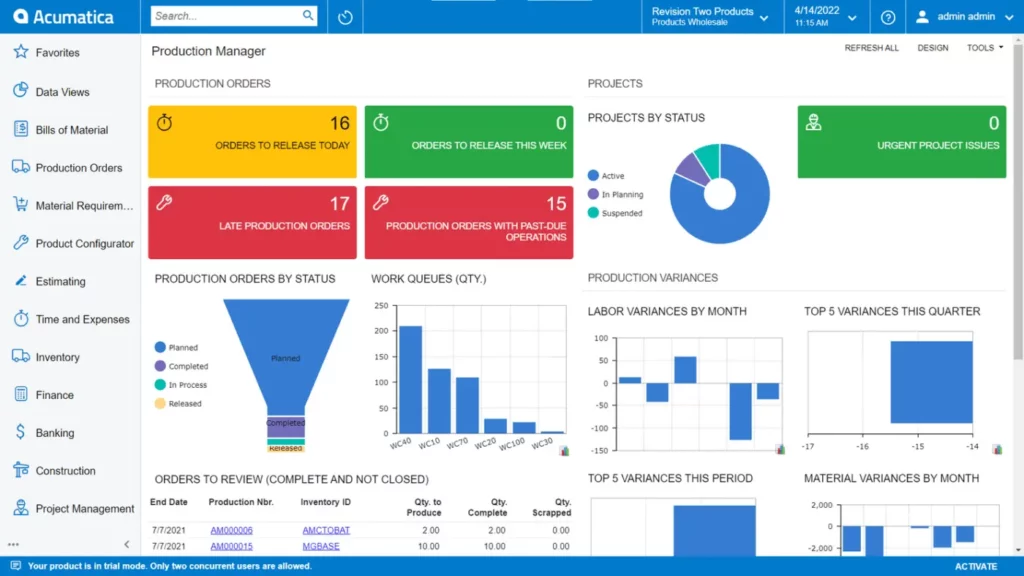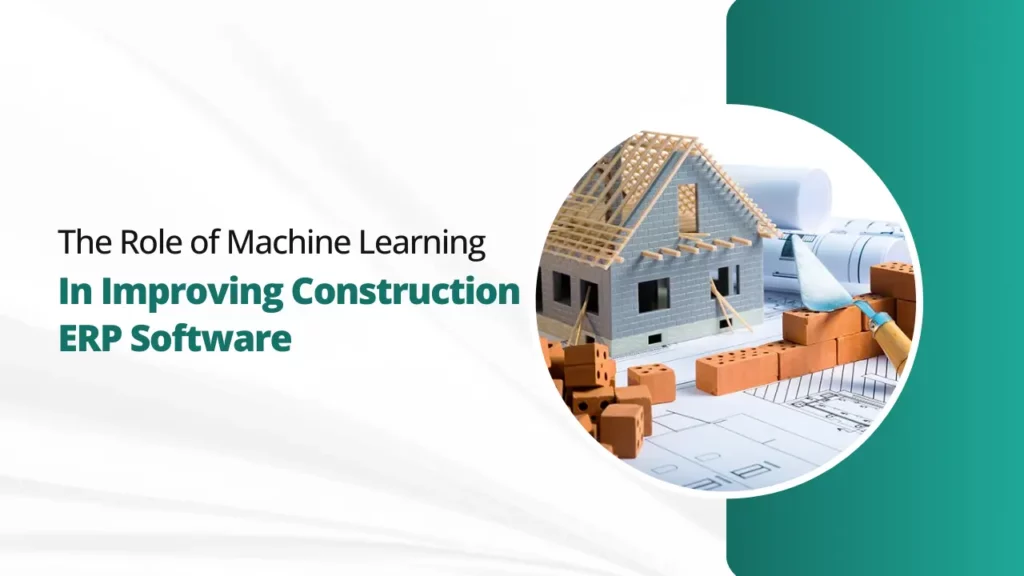ERP software has become an essential tool for construction companies. It helps in managing their complex projects and business processes. However, ERP software is often limited in its ability based on the vast data in construction projects. This is where machine learning (ML) comes in. Technology continues to play a pivotal role in simplifying processes and enhancing efficiency. One such technological marvel making waves in the industry is machine learning. ML allows computers to learn without being programmed. By analyzing large amounts of data, ML algorithms can make predictions. In this blog, we’ll explore ML’s role in improving Construction ERP software. We will also learn how it transforms the way construction projects are managed.
How Machine Learning is Improving Construction ERP Software
Traditional ERP software is often limited in its ability to provide insights. Making predictions based on a construction project’s vast data is challenging. ML can be used to overcome these limitations by providing predictive analytics. It can also automate tasks and provide real-time insights.
- Predictive analytics can predict project costs, schedules, and risks. This information helps to make informed decisions about risk mitigation. Automated task management can be used to automate routine tasks. These tasks include data entry, invoice processing, and scheduling. This can free up employees to focus on more strategic and value-added activities.
- Real-time insights can be used to analyze data from sensors and other sources. This provides real-time insights into project progress and identifies potential problems early on. This information helps to make proactive decisions to avoid cost overruns.

Benefits of Using Machine Learning in Construction ERP Software
There are many benefits to using ML in construction ERP software. Some of the key benefits include:
- Vast Datasets Analysis: Machine learning algorithms analyze vast datasets. This enables construction ERP software to provide actionable insights. It empowers decision-makers with a comprehensive understanding of project dynamics. It facilitates informed choices that impact timelines, budgets, and project success.
- Predictive Maintenance: ML algorithms can predict equipment failures by analyzing historical data. This proactive approach to maintenance minimizes downtime. It extends the lifespan of machinery and helps construction companies optimize their resources.
- Resource Optimization: ML-driven resource usage analysis allows for more precise resource allocation. It helps to optimize the deployment of materials and labor. Construction ERP software ensures resources are directed where they are needed most. This reduces waste and enhances project efficiency.
- Risk Management: Construction projects involve uncertainties, but ML can contribute to risk management. ML algorithms identify potential risks by assessing historical data and current project conditions. This enables construction managers to develop effective mitigation strategies to improve project success.
- Cost Reduction: ML-driven insights contribute to cost reduction by identifying inefficiencies. It also prevents equipment breakdowns and optimizes resource allocation. Construction companies can achieve better financial control using ML in their ERP systems.
- Improved Project Planning: Machine learning enhances project planning by analyzing past project data. This allows construction ERP software to generate more accurate project timelines. It also identifies potential bottlenecks and optimizes scheduling for improved project delivery.
- Adaptability and Improvement: ML algorithms learn and adapt based on new data. This adaptability allows construction ERP software to evolve and improve over time. This helps in staying in tune with the dynamic nature of construction projects. It ensures that the system remains effective in the face of changing conditions.
Conclusion:
The integration of machine learning into construction ERP software offers many benefits. This directly contributes to construction projects’ efficiency, profitability, and success. ML provides informed decision-making, predictive maintenance, and enhanced resource optimization. The adoption of ML represents a strategic investment for construction companies to stay ahead in a competitive industry.
Contact us if you are looking for experts for ERP implementation in your construction business with machine learning approaches.




